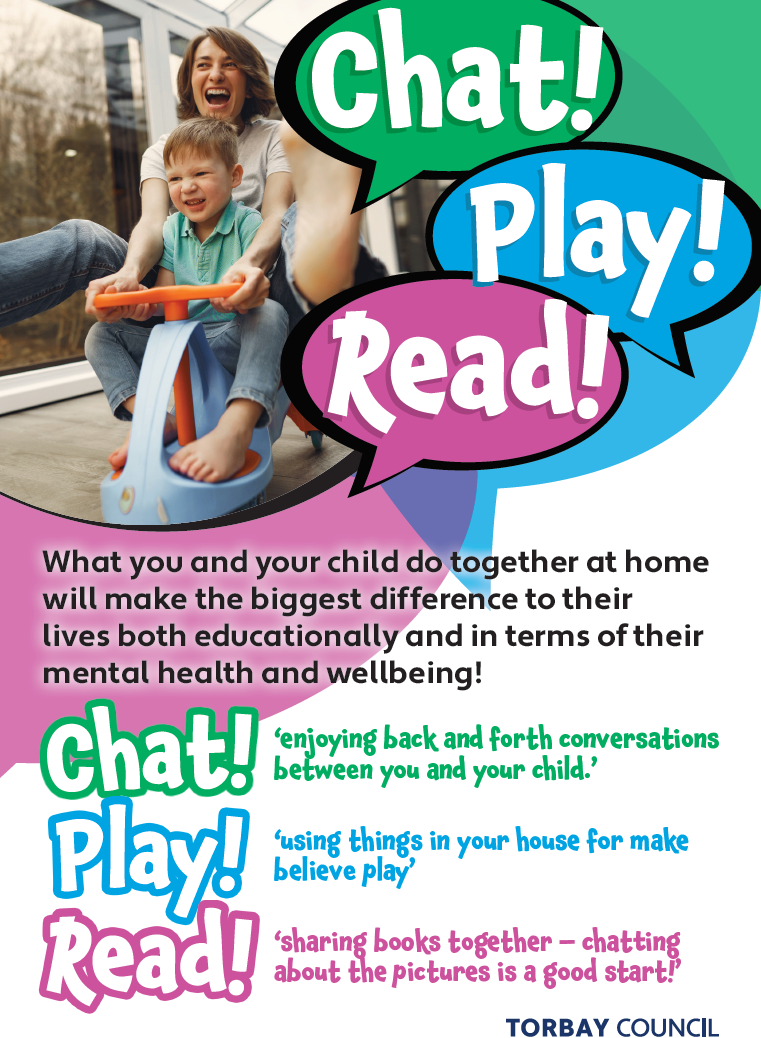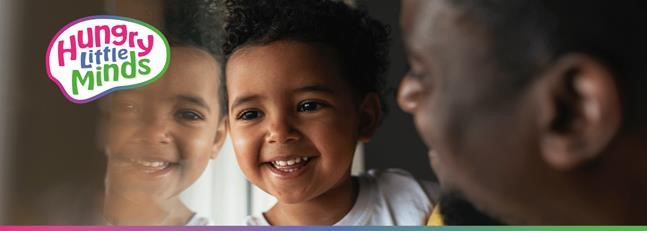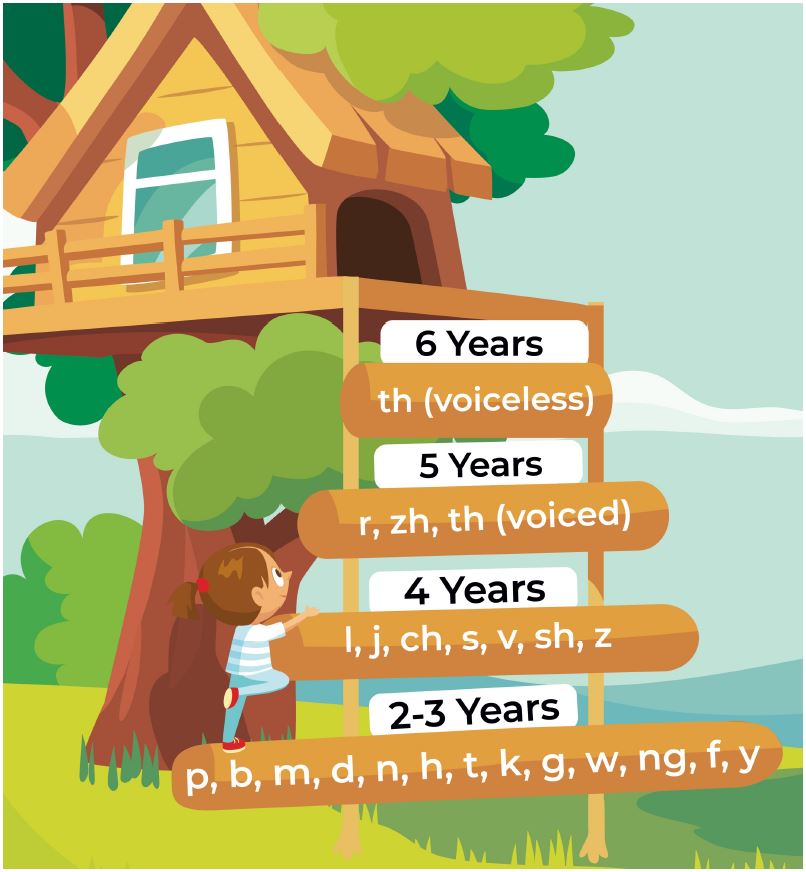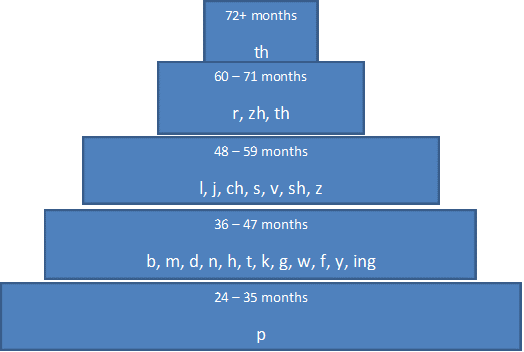Children’s SLC skills develop in a typical pattern and these can be represented as a pyramid; the Speech, Language and Communication (SLC) pyramid. The skills at the top of the SLC pyramid develop when the skills on the bottom become firmly established. For example, a child’s listening and attention skills need to develop in order to pave the way for their understanding of spoken language. If the skills at the bottom of the pyramid are not developing appropriately for a child’s age it is likely that the skills at the top will not be able to develop appropriately either.
The Early Communication and Language Monitoring tool
The Early Language and Communication Monitoring Tool was devised through collaboration with Plymouth, Devon and Torbay authorities. Through producing a cross county monitoring tool for speech and language, the aim is to reduce issues when children move to new local areas within Devon.
The document references:
- Development Matters Non-statutory curriculum guidance for the early years foundation stage, Department for Education, Sept 2021
- Universally speaking from birth to five, I CAN and the Communication Trust, March 2015
- The National Strategies Early Years, Every Child a Talker: Guidance for Early Language Lead Practitioners, Department for children schools and families, 2008
- Best start in speech, language and communication – supporting evidence, Public Health England, Department of Health and Social Care & Department of Education, October 2020
- Early Language Builders, Liz Elks and Henrietta McLachlan, Elklan, 2006
This tool outlines key milestones in speech, language and communication development to support identification of children’s needs in the Early Years Foundation Stage.
The Torbay SLC Monitoring Sheet
The Torbay SLC Monitoring Sheet is widely used within Torbay to check the development of children’s Speech, Language and Communication (SLC). The SLC Monitoring Sheet can be used to see whether children are developing appropriately in the areas of attention and listening, understanding, talk and speech sounds, and social communication.
32828Torbay Speech, Language and Communication
The statements within the SLC Monitoring Sheet in bold italics are ‘Red Flags’. If a child is not meeting these statements at the age in brackets then they may require further support through the setting, through parents supporting specific skills at home, through discussion with a Health Visitor about general development and/or referral for further assessment by a Speech and Language Therapist.
Early Talkers activities
The Early Talkers Boxset includes beautifully illustrated activity card sets for Babbling Babies, Toddler Talk and Chatting with Children. These activity cards help parents and carers to support children's communication from ages 6 months to 5 years. You can find them here Early Talkers Boxset (ican.org.uk)
To match up with the SLC Monitoring sheet, we have created an accompanying activities ideas sheet that match the Early Talkers activity cards.
32827Torbay Speech, Language and Communication
Early Talk Boost and Talk Boost for 3-7 year old children
In Torbay we have provided training and resources for both the Early Talk Boost (Early Talk Boost (ican.org.uk) and Talk Boost (Talk Boost KS1 (ican.org.uk) targeted intervention programmes available through ICAN. These programmes are evidence based and support the speech, language and communication of children who need an extra boost in their language development.
Nuffield Early Language Intervention (NELI) for Reception aged children
The NELI is currently being offered to schools across as an evidence-based early intervention programme to address children’s language needs. For more information about the programme, or to register your interest as a school please click here What is NELI? | Nuffield Early Language Intervention (NELI) (teachneli.org)
Visit The Talking Point progress checker to guide and help you to understand what to expect at each stage. You can also talk to your health visiting team, preschool, school nurse or school. It has been developed by I CAN, a national charity that leads the way on supporting and promoting children’s communication skills. It will also link you to their advice and resources which you may find helpful before considering a referral to the speech and language therapy service or whilst you are waiting for your first appointment.
The Communication Trust Opens in a new window has many free resources for practitioners and parents which can help in your support for children’s speech, language and communication.
Speech and language Therapy: referrals and drop ins
Children and Family Health Devon have a new website which includes details of how to refer children for Speech and Language Therapy, information about the virtual drop in sessions for children under 2 an early years toolkit with everyday strategies to support children’s communication skills and ‘how to’ videos for many strategies to help children’s speech, language and communication
You can also find information on their Facebook page along with the Let’s Get Chatting campaign.
Let’s Get Chatting Devon
If you are looking for easy links and information all in the one place, have a look at the Padlets created by Together For Devon with specific information for parents with children antenatally up to age 5
- Let's Get Chatting from bump to baby
- Let's Get Chatting for 0 to 2 year olds
- Let's Get Chatting for 2 to 3 year olds
- Let's Get Chatting for 3 to 5 year olds
For further ideas about how to support children’s speech and language, in terms of their attention and listening and their understanding, see the advice sheets below.
25136,25135,30707Speech, Language and Communication 0-1 years
Speech, Language and Communication 0-1 years
Check out this information about how you can plan to ‘dump the dummy’
Watch this short video to find out more about how children learn to talk, from birth through to five years old.

Tiny Happy People – Your words build their world
Tiny Happy People has so many great videos and tips about how to develop children's communication skills. Explore the simple activities and play ideas and find out about how amazing children’s brains are as they learn from all the words that they hear when parents and special people chat with them. Watch the Tiny Happy People first words video

Hungry Little Minds
Many little things light up hungry little minds. Kids take everything in, and even the smallest things you do with them can make a big difference.
Whatever the time and wherever you are, you can turn almost anything into a game. Visit www.hungrylittleminds.campaign.gov.uk for some simple things you can do at home together with your child.
Children's speech sounds
Children’s speech sounds and how they say words may be concerning for parents if they aren’t quite getting their words to sound the way that they should. For example, if a child is saying ‘tar’ instead of ‘car’, parents may wonder whether it is something to be worried about.
Our Speech and Language Therapy colleagues from Children and Family Health Devon have given some advice about the sounds that children generally learn to say at each age. This can help practitioners and parents decide whether a child might need to referred for further assessment of their speech sounds.
If you are still concerned, you can contact Children and Family Health Devon SLTs on their advice line Monday to Friday 2pm to 4:30pm on 03333219448.

Average age children learn to pronounce English consonants correctly (based on 15 English speech acquisition studies compiled by McLeod and Crowe, 2018)
McLeod, S. & Crowe, K. (2018). Children’s consonant acquisition in 27 languages: A cross-linguistic review. American Journal of Speech-Language
Pathology. doi:10.1044/2018_AJSLP-17-0100. Available from: https://ajslp.pubs.asha.org/article.aspx?articleid=2701897

However, a child won't always use every sound correctly 100% of the time. This diagram shows the sounds that should be used correctly 100% of the time at each age. For example, at age 2, the only sound a child will use correctly 100% of the time in words is 'p' (pig, cup, nappy).